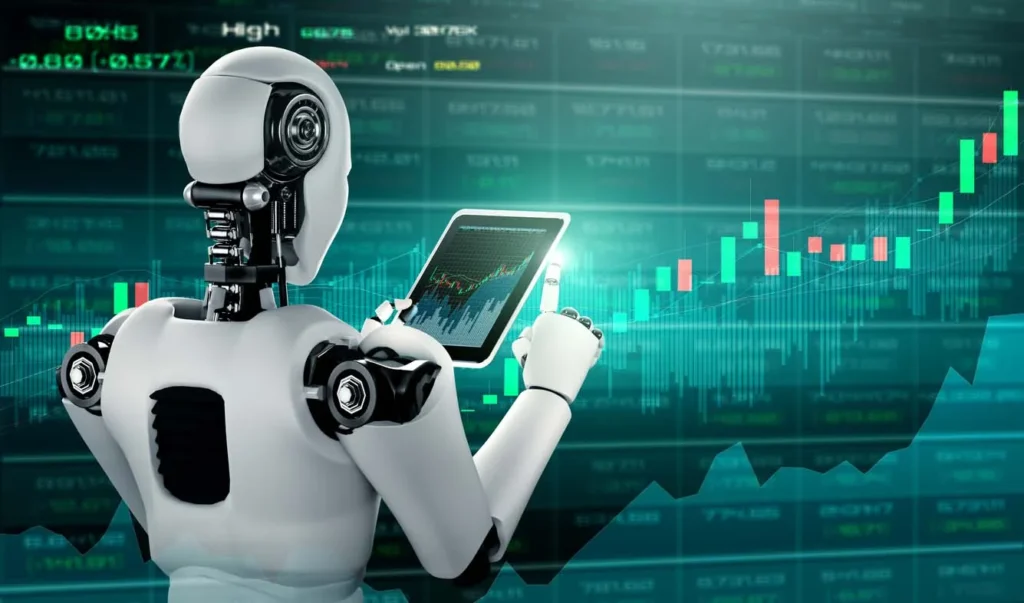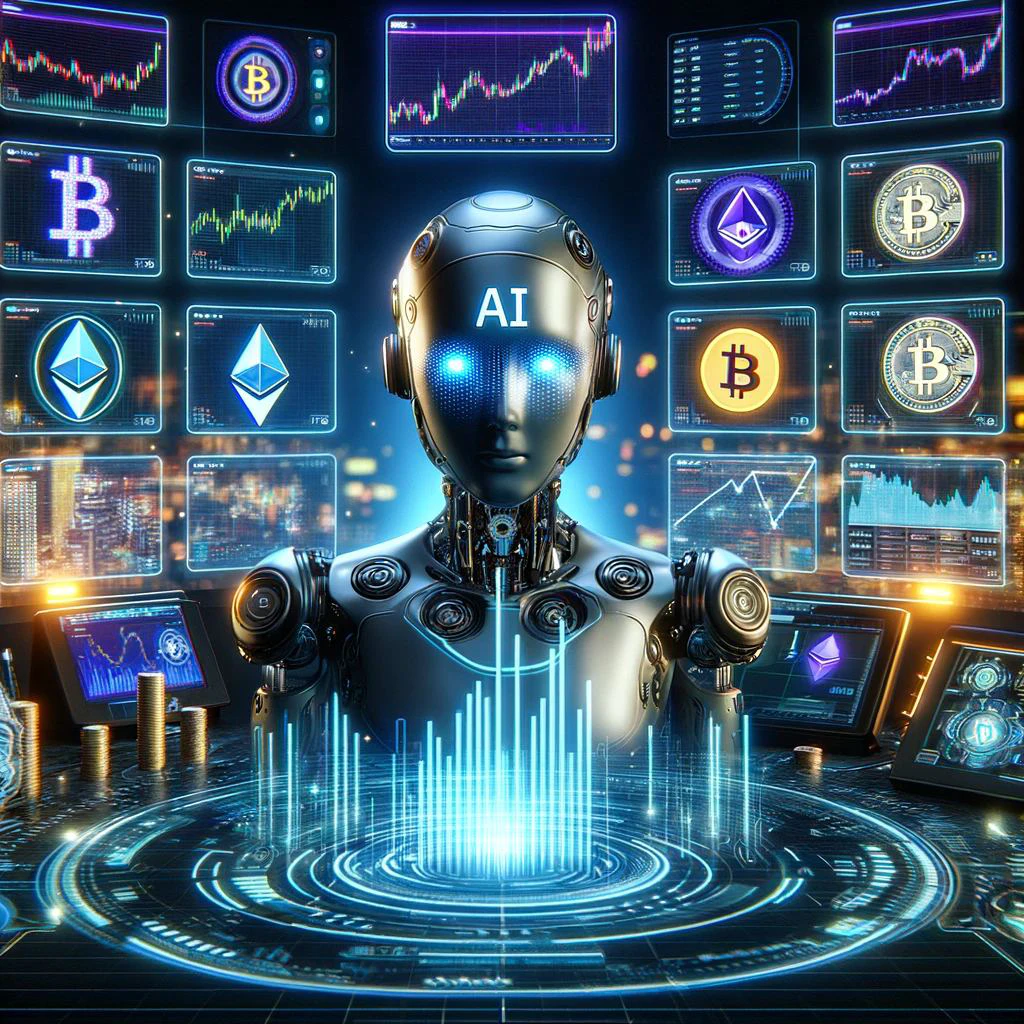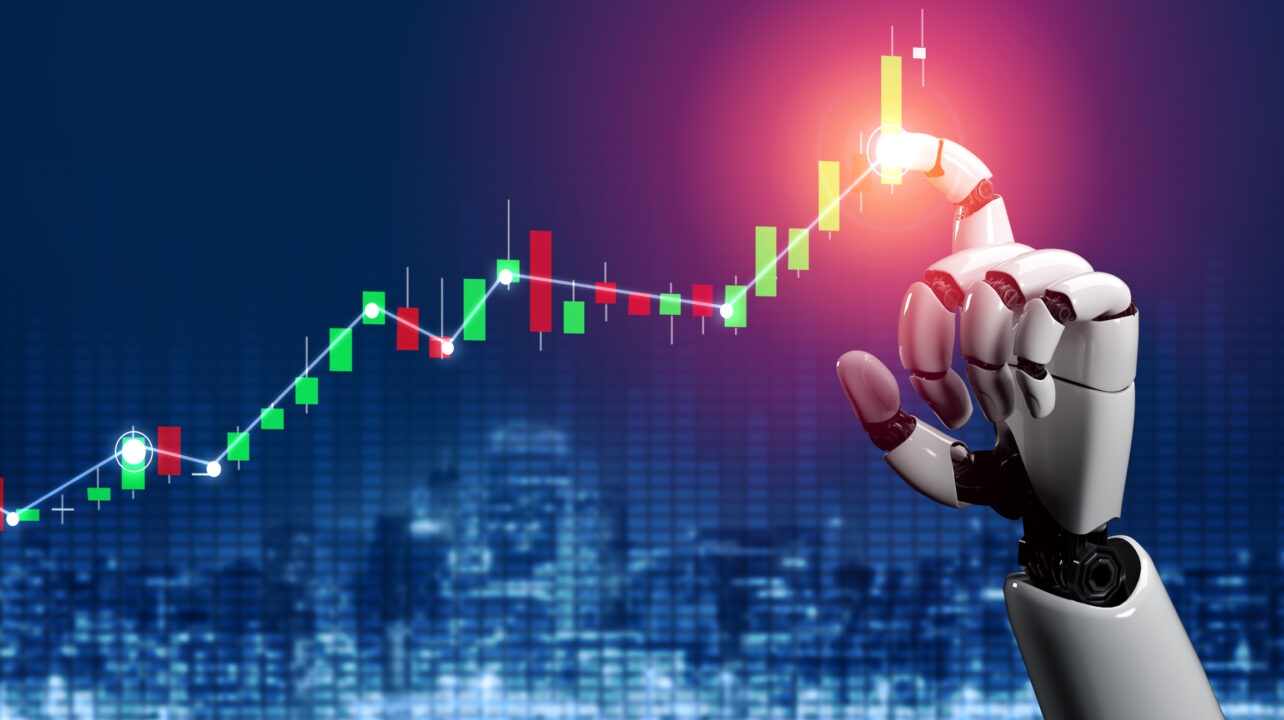Table of Contents
- Introduction
- AI’s Role in Modern Trading
- Advantages of AI in Trading
- Challenges and Risks Associated with AI
- AI vs. Human Traders: A Comparative Analysis
- Impact of AI on Cryptocurrency Markets
- Conclusion
Introduction
Artificial Intelligence (AI) is transforming trading by enhancing efficiency, accuracy, and decision-making. Its integration into trading platforms has led to both advancements and challenges in financial markets.
AI’s Role in Modern Trading
AI-driven algorithmic trading enables rapid analysis of vast datasets, identifying patterns and executing trades at speeds beyond human capability. This automation reduces human error and emotional bias, leading to more objective trading decisions. For instance, AI systems can process market data, news sentiments, and other factors to make split-second trading decisions, enhancing market efficiency.

Advantages of AI in Trading
AI offers several benefits in trading:
- Enhanced Decision-Making: AI analyzes large datasets to identify patterns and trends, aiding traders in making informed decisions.
- Emotionless Trading: AI operates without emotional bias, executing trades based on data and predefined criteria.
- Backtesting Strategies: AI allows traders to test strategies against historical data, assessing potential effectiveness before real-world application.
These advantages contribute to more efficient and effective trading strategies.
Challenges and Risks Associated with AI
Despite its benefits, AI in trading introduces risks:
- Market Volatility: AI-driven trades can amplify market movements, leading to instability during periods of stress.
- Systemic Risks: The opaque nature of AI decision-making can pose challenges in understanding and mitigating risks.
- Potential for Errors: AI systems may execute unintended trades due to errors or misinterpretations, as seen in incidents like Citi’s ‘fat-finger’ trade. FN London
These challenges highlight the need for careful implementation and oversight of AI in trading.
AI vs. Human Traders: A Comparative Analysis
While AI excels in data processing and executing predefined strategies, it lacks the nuanced judgment and adaptability of human traders. Human oversight remains crucial, especially in interpreting complex, non-quantifiable factors and making strategic decisions during unprecedented market conditions. The future of trading likely involves a synergy between AI efficiency and human intuition.
Impact of AI on Cryptocurrency Markets
In cryptocurrency trading, AI-driven bots analyze market trends and execute trades, offering advantages like 24/7 market monitoring and emotionless decision-making. However, the high volatility of crypto markets poses challenges for AI systems, which may struggle to adapt to sudden, unpredictable changes without human intervention.

Conclusion
The integration of AI in trading necessitates a balanced approach, leveraging AI’s capabilities while maintaining human oversight to navigate its limitations. Ongoing advancements in AI technology and its increasing adoption in financial markets underscore the importance of understanding its implications for the future of trading and digital assets.


No comments yet